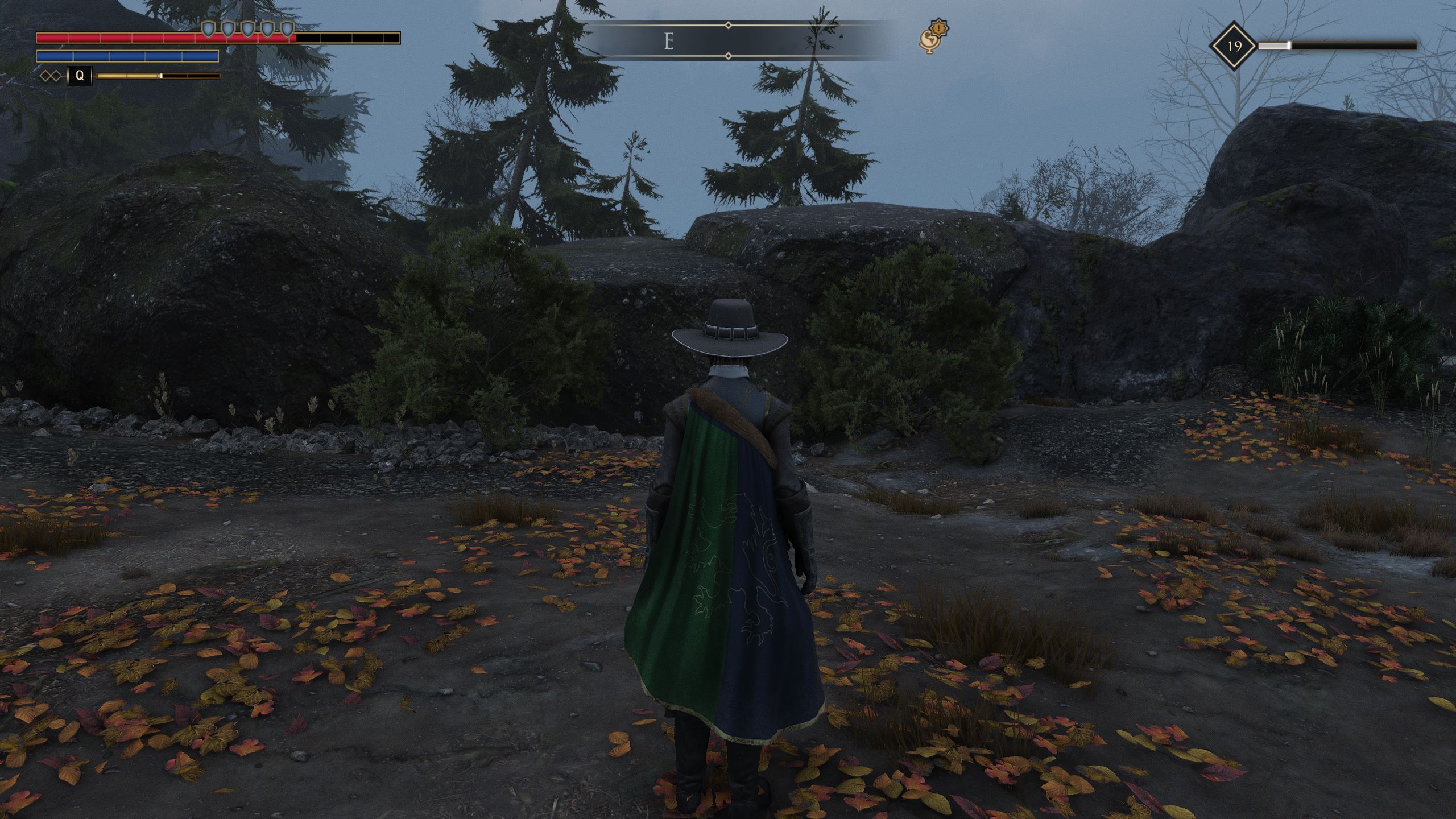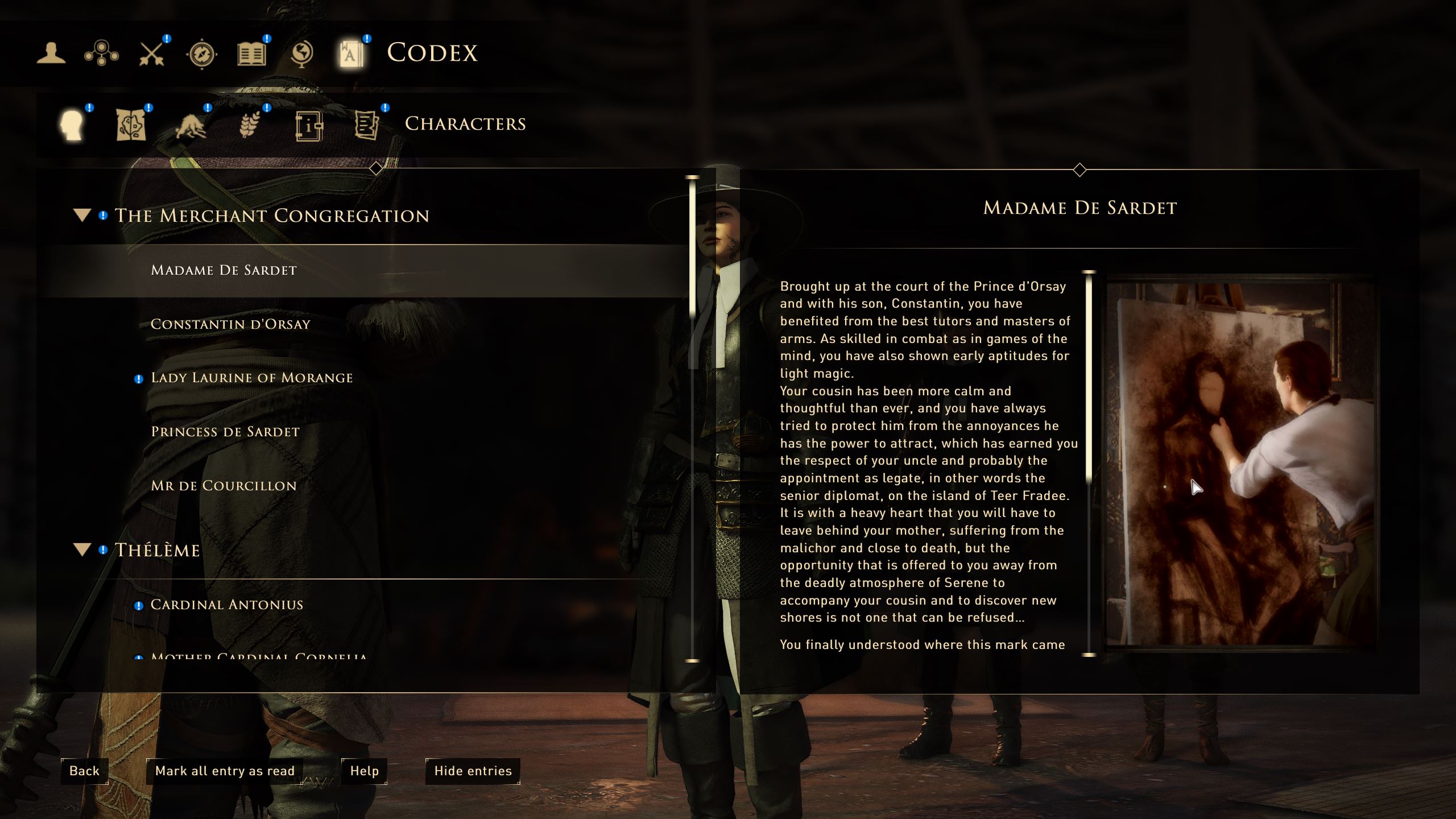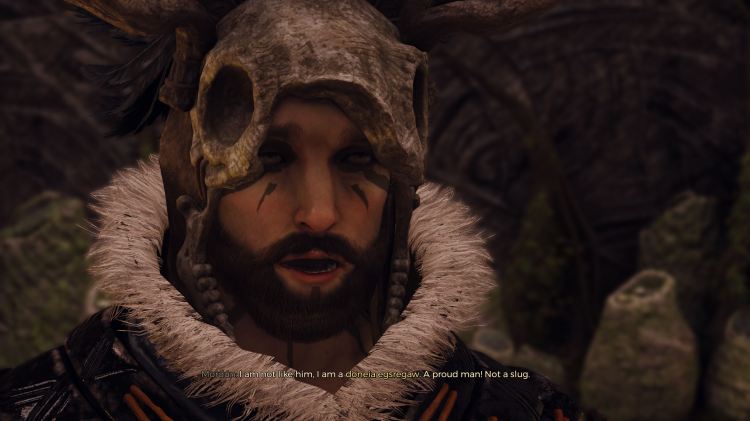Greedfall, the latest action-RPG from French development studio Spiders, makes no real claim to the RPG crown. It is out now for PlayStation 4, Xbox One, and PC (I reviewed the game on PC). It’s not as massive in scope as The Elder Scrolls series, and it’s not as rich with lore and intrigue as The Witcher. And to be honest, it doesn’t really pretend to be either of those things. Instead, it sets it sights a little lower in the hopes of capturing what has made those games such endearing favorites on a smaller scale, while carving out an identity of its own.
In some ways it does. In my early hours, I could feel its reduced scope but didn’t mind it, as I traveled to new locations regularly and found quests that took curious twists, all set against a novel backdrop. Its characters have a heart despite some wonky animations and lip-syncing, and while I liked some companions more than others, I understood their allegiances and motivations.
But then, slowly, Greedfall falters as its scope expands. After venturing around the island of Teer Fradee (the game’s central locale) for over 40 hours, its ambitious to provide the breadth of a larger-scale RPG becomes a hindrance even as its stories continue to deliver, as much of what makes Greedfall novel wears out over time and it fumbles some of the more precarious aspects that come with the setting it takes on.
Check out our Reviews Vault for past game reviews.
What you’ll like
A clever mix of fantasy and history
Greedfall takes place on Teer Fradee, a lush island full of resources, people, and secrets to explore. It’s rife with Greedfall’s take on several fantasy monsters, tropes, and archetypes, including magic and the occult. But for all the fantasy aspects in its world, it’s the way Greedfall alludes to real history that I’ve enjoyed most.
Greedfall’s more fantastical aspects play second-fiddle to its historical inspirations. As an heir to the Congregation of Merchants’ prestigious De Sardet family, who has taken on the role of diplomat in the nation’s latest expedition of Teer Fradee, your job is to find a cure for a malignant disease called the malichor while playing mediator among the various factions on the island, including the sailors responsible for bringing everyone onto the island in the first place, the religious Thélème, and the various indigenous groups that populate the island.
Although much of its aesthetic is inspired by the Baroque period of history, many of Greedfall’s narrative threads pull from European colonization narratives, and it’s a fascinating backdrop for an RPG. Several quests deal with the repercussions of outside nations settling on native lands, and don’t shy away from alluding to their harsher implications; natives are regularly captured by Thélème and forced to convert to the teachings of Saint Matheus or die, a surprisingly direct allusion to Spanish conquistadores’ subjugation and conversion of Native Americans.
Allusions to real-world racism aren’t new for an RPG, but when the allusions hit so close to their real-world inspirations (Thélème armor tends to look Spanish in origin, and the nation even has its own “Inquisition”), those references become more direct and powerful as a result. Greedfall explores those ideas with some nuance as well; the natives of Teer Fradee are split into multiple clans and settlements, and often don’t agree about how to approach settlers. Some villages opt to work in tandem with them, others “convert” overtly to avoid punishment but secretly maintain their native beliefs. The various settlers also have their own motivations, which often means having to play the religious, merchant, and sailor factions against each other.
This is still a fantasy RPG, however, which means I’m delving into arcane mysteries and deciphering ancient tablets as often as I’m being thrust into political intrigue. That intrigue eventually gives way to a more fantastical plot that doesn’t prove as compelling as the ways the various factions interact with each other, but it never completely loses sight of its inspirations, which still stand out in the genre.

Above: An RPG on a smaller scale.
Great questlines and characters
Greedfall’s rich world is backed up by strong writing, both in how questlines develop and how some key characters contribute to them. In the first few hours, as I explored the port from which you depart to Teer Freedee, questlines introduced fun twists that kept me guessing without tossing in unwarranted surprises.
One early questline has you unmasking a charlatan alchemist peddling a fake panacea concoction. When you confront him with evidence of his charade, you learn he was contracted to sell his concoction, which is actually an experimental cure for the malichor, to unsuspecting guinea pigs. Later quests only get better from there, and while they often begin in mundane places (such as with a native merchant who keeps getting his wares confiscated because he doesn’t have a permit), most happened to find new and surprising ground to tread.
The main questline, which has you looking for a cure for the malichor, also has its share of twists, which unfold over the course of several hours. It’s a slow burn (especially when you diverge to take on side quests), but it goes to some interesting places, and while the last few hours trade political intrigue for more genre-standard fantasy tropes, I still wanted to see how its disparate threads would come together.
As you trek back and forth across Teer Fradee, you accrue five party members, two of which you can have with you at any given time. They each hail from a different faction, and each provide you with different perspectives on quests. Petrus, a sort of mentor to your character in their youth, is an adamant follower of San Matheus, and will regularly ask that you consider Thélème’s side of an issue. Siora provides a native outlook on things, pushing back against settlers but staying pragmatic. All of them offer a great sounding board for choices you make along the way, and have depth to them beyond their allegiances and archetypes. Your party members also have their own dedicated questlines that reward you with increased loyalty, which opens up some more up some more dialog and quest options later on.
How progression affects choices
Greedfall has three major skill trees, which you fill out simultaneously as you level up. One tree has you specialize in different weapons, focus on magic spells, firearms, or traps, and each slightly change how you approach combat. Another lets you specialize in what kind of gear you can equip, and lets you focus on wearing heavy equipment, magic rings, or firearms. The last tree lets you choose among talents like charisma, intuition, and lockpicking.
That last tree can have a major effect on how you approach quests, and I found it a refreshing way to specialize your character. Charisma lets you convince characters to grant you special favors, intuition lets you find new solutions for problems, and science lets you craft certain quest items instead of buying them and destroy certain walls to make trekking across some areas easier. While not all stats proved useful (I mostly ignored vigor, which lets you cross certain gaps around the world, and rarely suffered for it), these stats — as much as the morale choices I made — pushed me to tackle quests in new ways, which I appreciated.
What you won’t like
The haphazard combat
Greedfall focuses heavily on its storytelling, but its RPG trappings that underpin it can be dicey. Combat, for example, has ranged from uninteresting to downright frustrating. Your basic actions are fairly simply, relying heavily on an attack-and-parry system. However, both lack the kind of finesse you’d want out of action-based combat; attacks can take too long to wind up, and stumbling and knockdowns animations (and when you get can attacked or move out of them) can be hard to read. It doesn’t feel precise, and while most encounters so far been cakewalks, it can be aggravating to face down a boss and not be entirely sure about whether the dodge you executed a moment ago is actually going to dodge a boss’s attack.
A few RPG layers give you options that ease some of that frustration. Along with melee weapons, you can use guns, magic, traps, and items mid-combat, each of which have their uses. Gunfire and heavy weapons can wear down enemy armor (which makes your regular attacks deal more damage), while magic attacks can bypass it completely. Traps, meanwhile, can soften up groups, while potions can give you temporary benefits. You can use a tactical menu to stop the action and fire these options off one by one, too, which means you can slow things down if you get overwhelmed. Fighting enemies on the whole isn’t terrible, but it’s not the reason I’m here, and right now, I’m putting up with it more than enjoying it.
I’ve also come across a strange issue that has made some encounters frustrating. Enemies have a line of sight gauge usually reserved for stealth sections and which helps you avoid them in the world’s more open-ended areas. But I’ve had a number of instances where, mid-combat against a particularly tough groups of enemies, they’ll lose line of sight with me for a second, which resets everyone (including my party’s) health and stats immediately. Having to start tough fights over is frustrating, especially since it’s made me hesitant to use healing potions or traps, since I could end up wasting them. It’s possible this is a glitch that will be fixed in an upcoming patch, but as of right now, I’m having to figure out how to stay within enemies’ view for fear of starting a fight over, which isn’t fun.
Its half-hearted approach to troubling aspects
While Greedfall’s exploration of colonization is novel in the RPG world, that comes with some pitfalls, ones Greedfall is inconsistent about avoiding. On one hand, most of the militant colonizers are villains, and (with a few exceptions) the native groups are viewed as a positive force within their island. You can almost always choose to side with the native groups at the cost of the religious and settler forces who would capture, kill, or control them.
But these villains are often cast as breaking the rules, not cogs in a pursuit (colonization) that’s fundamentally troubling. As a diplomat, your role is often to make sure that the bad guys are playing by the rules. If something’s amiss in Teer Fradee, it’s because one of the colonizers broke a contract, abused a rule, or secretly went against the wishes of their superiors in order to subjugate, control, or exploit natives. Natives are also given multiple views across their various clans, but they’re all lumped up into one faction, whereas the colonizer forces are split up into several, giving their voice less importance as a whole. And while you can be sympathetic to natives, the onus of action is ultimately on a crew made up of colonizers, which presents its own problems.
I like, overall, that Greedfall even gives rise to the issues of colonization and native struggles in the first place, because it both distinguishes it from the RPG mold by making more explicit its allusion to race, colonization, and other real-world issues. But these topics need to be handled with grace, and Greefall falls short here.

Above: Look at all that text.
Its choices don’t go far enough
Like many RPGs, Greedfall emphasizes the weight of your choices. Quests can play out different depending on which dialog choices you make and which character stats you’ve invested points into. But while quests can play out differently, those changes are mostly self-contained, and I largely felt like I was playing through the same plot as anyone else, albeit with some altered scenes.
The biggest choice I made was whether I’d tackle the optional companion quests my party members offered me. These choices can heavily modify certain other quests, but other quests can sometimes rely on you having completed these quests, or having progressed through the main quest far enough for them to really trigger. So the choices you’re making aren’t about whether you’ll side with one faction or another, but whether you wanted to spend the extra time to complete a quest.
And while the relationships between different factions factor into a large part of the overall story, the in-game faction system doesn’t amount to much. Doing favors for each of the various factions affects your standing with them, and building up a good enough reputation can mean getting a fancy new piece of gear. However, I didn’t pay too much attention to my standings with each faction, and I don’t think I really suffered for it. The payoff of the faction system is fairly minor, and while a few scenes acknowledge that I’d managed to piss off a few people during my journey, I didn’t see any major consequences for it in the long-run.
The lack of exploration
One of the first quests I got tasked me with exploring most of Teer Fradee in search of campfires to set up and notes to scour for details about the island I was exploring. It sets up the expectation that this island is worth poking around in, that you should wander off the beaten path whenever you can. That’s not really the case.
Greedfall isn’t an open-world game, for starters. Instead, you explore a number smaller areas, with various question marks that spring up as you wander through them while on the way to the next quest objective. Unfortunately, these areas haven’t proven to be worth exploring on their own, and I’ve mostly kept on following the next marker whenever I could.
Whenever I’ve tried to seek out the question marks that pop up around the map, all I’ve found so far are camps that let you rest and fast travel, as well as tablets that grant you skill points you can use to level up your character. I never ran into any major quests out in the open, or even curious little-side venture into a small area. Some paths are blocked off until a side or main quest demands you head there, too, which pushed me away from exploring locations.
This issue only becomes more glaring as time goes on. While their stories often introduce some clever twists, quests don’t do much to mix things up, mechanically speaking. Most of them having you traveling across some fairly large, empty maps to talk to someone or recover an item, facing off against monsters or enemies along the way, an issue exacerbated by how winding and empty some of these paths can be. Sometimes you’ll get the choice to automatically warp to your next objective, but this option didn’t pop up nearly enough.
This put a huge emphasis on the writing itself to deliver constantly. It’s mostly up to the task, but when the writing of certain quests wasn’t up to snuff or the general thread I was chasing felt weak, what I was doing along the way wasn’t there to pick up the slack.
All the other rough edges
Greedfall is an ambitious step forward for Spiders, a smaller studio previously responsible for adventure games like Sherlock Holmes Versus Jack the Ripper and smaller-scale action-RPGs like The Technomancer and Bound by Flame. But while Spiders has done a commendable job of creating a rich world with strong characters, it’s hard not to see many of the holes poking through its world.
Along with combat’s general lack of polish, a few other issues range from systemic quirks to visual issues that can distract from the characters and world. Stealth-based missions, for example, can be inconsistent. One quest in which I was tasked with gathering information on prominent member of aristocracy let me just run around her palace in full few of the guards, rummaging through her secrets to gain blackmail on her. While you can knock out guards by sneaking up behind them, one mission where I was tasked with sneaking around arbitrarily had me looking for another solution to the issue because the game had decided I couldn’t knock out any guards and sneak my way to an objective, something I was able to do perfectly fine during another, similar quest.
Character animations in narrative sequences are erratic and spotty, and you can see some cut corners, such as when the camera fades to black and back instead of showing a character take a sip from a goblet. The lip-syncing in dialogue sequences is spotty, which can distract from what characters are saying as I focused on their erratic lip movements.
All of these issues are minor on their own, but as a whole, they detract from Greedfall’s engrossing world and characters.
Conclusion
Greedfall’s fantasy world doesn’t shy away from brushing up against real history, which makes it a refreshing change of pace in a genre filled with medieval fantasy and space operas. And when it comes to creating the kinds of worlds, plots and characters that make an RPG worth caring about, Greedfall does a remarkable job within its smaller scope.
Greedfall is definitely ambitious, but when it comes to fleshing the other parts of a well-made RPG, Greedfall is too inconsistent to make it an easy recommendation. It doesn’t quite come to grips with some of its more loaded subject matter, its combat oscillates between boring and frustrating, and the impact of its choices are more localized than long-term. If you’re looking for a length RPG to tide you over until another major player comes along, Greedfall will fill that void, but expect several bumps along the way to remind you this is still a sidequest, and not the main event.
Greedfall is out for PlayStation 4, Xbox One, and PC. The publisher sent us a code for the PC version for this review.

